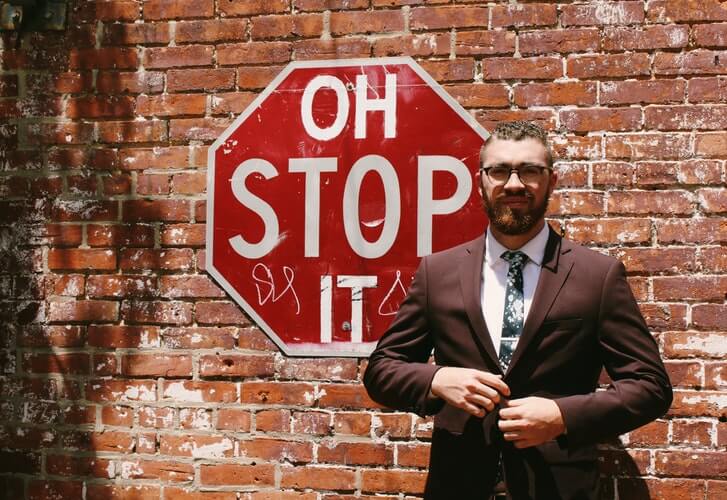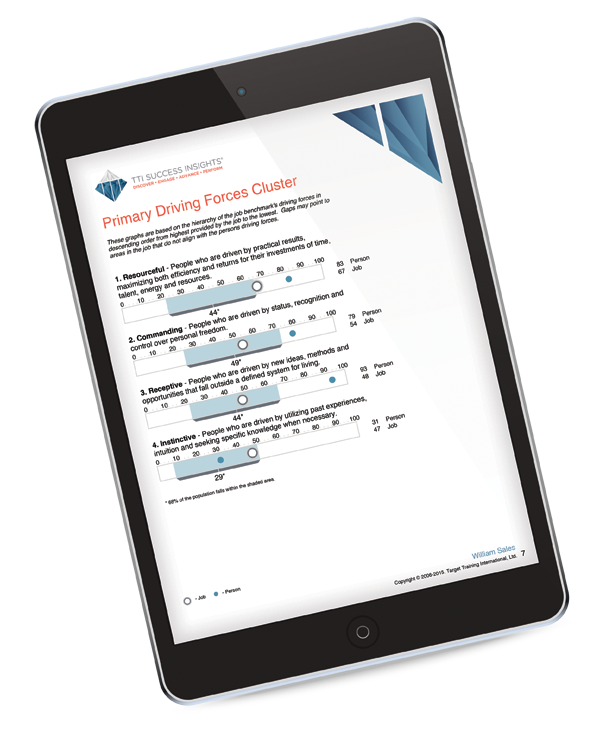Stop Blaming and Shaming to be Successful
Personal Accountability is the key ingredient

Being a leader is a noble calling. At the Complete Leader we understand that everyone is a leader in some way. We have many roles and in each of those roles, we are essentially a leader, somebody is watching us, listening to us and learning from us. You as a colleague are a leader, as a husband or wife, as a parent, an uncle, aunt, as a friend, as a member of your community….. you are always a leader.
Ask yourself the question, have you been the role model of the noble leader you wanted to be today in all of your roles?
The answer is of course a resounding ‘no.’ And that’s ok. We are human beings and there’s always room for improvement.
Pause for a moment and reflect upon how you behaved as a leader in your roles today- what really worked? Where did you go above and beyond?
Now remember where you had that tug, that visceral reminder that you didn’t perform at your best?
If I asked you to expand upon what happened- would you start your sentence with ‘It wasn’t my fault, It wasn’t my job, I didn’t sleep, I was under huge pressure?’
Really think about your answer to that question. We are literally hardwired not to take the blame. Our limbic brain is set to protect us and taking the blame is interpreted as a threat or a physical attack.
That said, we have evolved far beyond the caveman’s limited choices. If we want to be a leader of character, we must embrace the competency of Personal Accountability. We must quit making excuses, re-establish our integrity and like Harry S. Truman place a sign on our desk that says ‘Let the Buck Stop Here.’
Defining Personal Accountability
Let’s break it down into a skillset:
A Personally Accountable leader
- Takes responsibility for the consequences of personal actions
- Avoids placing unnecessary blame on others
- Is committed and disciplined in achieving objectives regardless of obstacles
- Has ‘high visibility’ goals.
- Lives by her/his ‘values’.
- Manages Time and Priorities effectively
- Applies Personal Learning from Past experiences to move forward (Blackbox Thinking)
- Projects confidence and self assurance
- Manages Energy effectively
Why is Personal Accountability important for a leader?
![]()
Accountability comes from the word account, to account for the resources you have. Personal Accountability means you don’t need someone else to hold you to account. You hold yourself to the highest standards, you are committed and can be counted on.
Leaders set the course and the greatest way leaders lose their integrity or lose their influence with their audience is when they cease to be personally accountable.
In practical terms, this means returning phone calls on time, nurturing and maintaining important relationships, admitting mistakes, clearly understanding your role, deliverables and producing the required results overcoming any obstacles along the way.
When a leader doesn’t hold herself personally accountable, she sets the tone and creates a culture of blaming and shaming, a culture where the lack of trust is palpable. What your direct reports feel is unsupported, they exist in a state of anxiety, survive or die and it leads to lowered engagement, absences, and turnover, all of which impact your organisation’s bottom line.
Trust Leaders (Organisations with high trust in their Leaders) are more than 2 ½ times more likely than Trust Laggards ( Organisations with Low Trust in their Leaders) to also be leaders in revenue growth. What’s more, Trust Leaders significantly outperform all other organisations in achieving key business goals—including customer loyalty and retention, competitive market position, ethical behaviour and actions, predictable business and financial results, and profit growth.
Interaction Associates Building Work Place Trust Survey
Ron Price Complete Leader Founder and Facilitator says that Leaders who have developed the Competency of Personal Accountability accept responsibility when things go wrong and give other people credit for when things go right. That takes depth of character. He believes that some of the best organisations to work for are not the ones where the leader holds everyone accountable, which can be a paternal approach but where everyone learns to take personal accountability. It’s a subtle twist but the difference is powerful, it’s all in the attitude.
I can’t stop blaming- its like a reflex!

In his book “No Excuses” Brian Tracey says ‘Here is the great discovery: All negative emotions, especially anger, depend for their very existence on your ability to blame someone or something else for something in your life that you are not happy about. It takes tremendous self-discipline to refrain from blaming others for our problems. It takes enormous self-control to refuse to make excuses.’
Why do we blame? The reason we blame is that we’re putting the reason for our failure outside of ourselves. We’re giving up our power, we’re not being accountable or responsible.
So let’s examine your Mindset: Are you a Creator or Victim?
In the book TED (The Empowered Dynamic) David Emerald tells us if you have a victim mindset you focus on everything that’s wrong, you literally focus on what you don’t want. Where as if you are a creator, you focus on the positive outcomes, what you want not what you are powerless over.
When you say ‘It wasn’t my fault’, ‘It was out of my hands’ do you feel empowered? Say it aloud. You will find you feel disempowered, Victims are passive and Creators are active.
Have you ever seen a healthy and vibrant plant with compromised roots? No, of course not, watch your thoughts and your mindset as they will predict your health and success.
Take the Locus of Control Questionnaire below to determine whether you believe you are in charge of your own success.
Locus of Control Questionnaire 
According to Ron Price ‘When I see a leader who has become a victim and has ceased to be accountable is almost always because they are overwhelmed by all the demands and the first responsibility for a leader is to manage themselves and to make sure they are giving the best version of themselves as an accountable leader which leads me to our next subject, goals and time management.
What are ‘high visibility’ goals?

A key aspect of Personal Accountability is establishing very clear goals. Once you have established these goals, you know what’s expected of you, you can manage your time and priorities better. You have laser sharp focus.
The Complete Leader suggests asking stakeholders the following question: ‘What are the key results that will reflect superior performance in my job, to this project or for our team?’
Manages Time and Priorities effectively
Once you know what your priority is and have established timelines for project completion, a good idea is to put together internal checkpoints to make sure that you stay on schedule.
A good tip from Price Associates is to keep an electronic list of tasks to be completed. Label each task as either A (Critical to Survival), B (Important to Success), C (Somewhat Important) or D (Not Important or Unknown Importance).
This will help you identify what really needs to be done and what can wait. Keep it all in the one place and on the one app for clarity.
Secondly, it’s a good idea to spend 15-30 minutes every morning organising and updating your task list. Consider your long-term goals and how you choose to manage yourself and relate to others.

What are my values?
What are your guiding principles? How do you like people to behave towards you? Use them as your own roadmap to Personal Accountability. Write them down and revisit them regularly. Ask yourself at the end of each day how well did I stay congruent with my own values?
Padraig Berry The Complete Leader Ireland Facilitator says Dan Sullivan uses the 4 keys of referability: show up on time, do what you said you’d do, finish what you start and say please and thank you. Being able to lead yourself is a key element of leadership. Watch Padraig’s Insight #81
Leaders embrace Failure
Personally Accountable leaders have bounce-back-ability. They learn from mistakes using Black box thinking. They analyse the data to hand comprehensively and make a plan for not making the same mistake again. The expression is trial and error- we learn from our errors, it’s the fuel for our future success. See our previous Blog for Blackbox thinking.
Your Energy is finite
Have you ever noticed when you start to blame and criticise it’s usually because you’re neglecting the fundamentals? Eat, Sleep, exercise, spend quality time off doing something you love. What energises you? Invest as much time in recharging yourself as you do in driving yourself at work.
In fact as a result of Nathaniel Kleitman’s (Sleep Researcher) discovery that we have ultradian rhythms of 90 minutes of higher and lower alertness during the day as well as at night and K. Anders Ericsson’s performance research on young violinists, we are coming to understand that working in 90 minute blocks with 20 minutes of rest is the most productive way for us to work. How can you make this work for you?
Work like you’re a Volunteer
Stuck in a rut? Make your job more rewarding by redefining your role and look at novel ways of doing things to achieve maximum results. Ask your Team for input.
When Cortez arrived in South America he personally set fire to the first of their boats before asking his soldiers to follow suit, so that they couldn’t retreat at the first battle.
What boats do you need to burn? Participate fully in the workplace. Put extra time and effort if needed to do a good job.

Unwaivering Focus
We must recognise that everyday there is a battle going on inside us. Or as Alan Cohen puts it in his book: ‘There are two lawyers in a courtroom inside your head, one is arguing for your possibilities and for achieving your goals. The other is arguing for your limits and why you don’t deserve what you want. Who will win? The lawyer whom you pay the most. The way you pay these lawyers, however, is not with money; but with your attention.’
Help yourself by turning off social media, email notifications, internet and blocking out chunks of time for focused work, be disciplined. Use an app like Selfcontrol or Antisocial.
Ask Questions and take Action
John G Miller wrote the book ‘The Question behind the Question’ to address blaming, complaining and procrastination, the issues behind a lack of personal accountability. QBQ is a tool that helps individuals practice personal accountability by asking better questions. The idea that we are accountable for our own choices and are free to make better ones is fundamental to the QBQ
There are three simple guidelines in the book summary
- Begin with asking ‘what’ or ‘how’ (not why, when or who) If we use when, it implies we have no choice and need to put off our action until later, it leads to procrastination. If we use ‘who’ we are passing the buck, putting the responsibility onto someone else.
- The Question behind the question contains an ‘I’. Not ‘they,’ ‘them,’ ‘we’ or ‘you.’ Hold yourself accountable, don’t blame yourself and don’t direct at others.
- Focus on Action: To make a QBQ action focused, we add verbs such as do, make, achieve and build to questions that start with a what or a how and contain an ‘I’?
- What can I do to help you do your job better?
- How can I improve the situation?
- How can I better understand you?
- What can I do to make a difference?
Miller believes that disciplining your thoughts, asking better questions and then following through with action is the way to Personal Accountability.
Final Thoughts on Personal Accountability
Padraig Berry in his Insight #140 on Advice to a thirty year old recommends, finding a practice to bring you into the present moment, whether it’s a meditation or a mindful activity so that you are aware of what’s going on, seeing clearly the part you have to play in a situation, owning it and then seeking to find a way to do something differently the next time, to achieve a better outcome.
This is the essence of Personal Accountability. Do you want to develop your skills as a Leader? Are you curious to know where your strengths lie? Go to The Complete Leader Ireland.
Our next programme will be specifically for younger, emerging Leaders. How’s your Senior Team performing, do you have someone that needs this programme? We also run in-house Tailored Complete Leader Ireland Programmes for your whole Leadership Team. Contact us for more information padraig@ttisii.com
“Knowledge has to be improved, challenged, and increased constantly, or it vanishes.”
― Peter F. Drucker
10 Things Successful People Do Every Day
What if there was a secret formula for success that you could copy? Kevin Kruse best selling author recently interviewed more than 200 highly successful people to find out what their number 1 secret to productivity? These people included 7 billionaires and 13 olympians. The answers have been distilled into 10 Simple Steps you can follow to achieve your own success.
5 mistakes people make with the DISC profile
When you are hiring, you need to use more than DISC. DISC is outwardly observable behavioural tendencies. What goes on beneath the surface is harder to read but even more powerful. What if you could see what a person values and is driven by, be it money, status, helping others? How much engagement could you get from your employees if you had this information at your finger tips. Using DISC correctly and in conjunction with the other TTI Tools is essential for your organisation’s success.
3 Easy Steps to Building a Solid Company Culture
Companies need to reimagine how they attract – and retain – employees by giving them what they desire, resulting in keeping them happier and more engaged. I am unique. So is every other employee. Companies would be wise to get to know their employees on a personal level and find out what is truly important to each and every one of them. Then, create a unique plan for each person that helps the employee achieve what he or she strives to achieve.

FREE DISC Assessment: Find out what your behaviours really are!
Have you ever taken a DISC Assessment? Actually… Have you ever taken a TTI DISC Assessment? Well why wait any longer, lets find out why you really behave the way you do!



